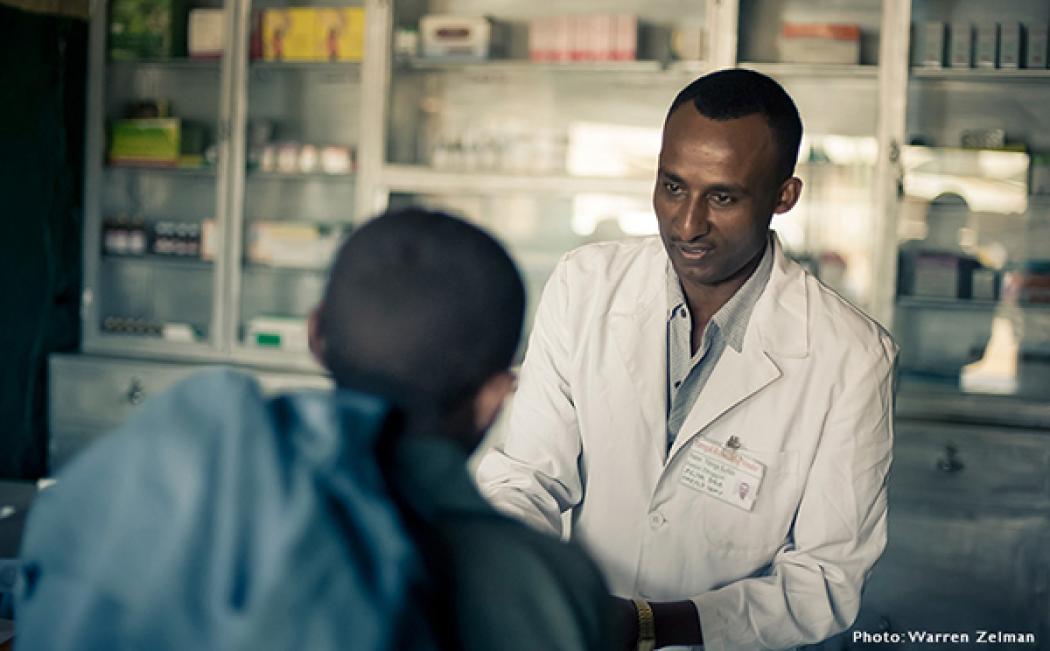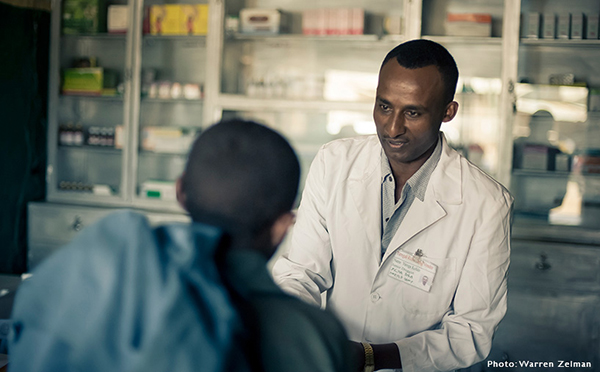#WHWWeek: Thank Your Pharmacist, A Cornerstone of the Health System

By Rachel Hassinger, Management Sciences for Health (MSH)
This article originally appears on the MSH website.

"Medicines are a key component of treatments to save lives"
~ Kwesi Eghan, trained Ghanian pharmacist and MSH portfolio manager for the US Agency for International Development (USAID)-funded Systems for Improved Access to Pharmaceuticals and Services (SIAPS) program in South Sudan and Afghanistan
A child in Tanzania has a fever for three days. A pregnant woman in Namibia is taking antiretroviral therapy (ART) to treat HIV and prevent transmission of HIV to her baby. A man in Swaziland suffers from drug-resistant TB and struggles to adhere to treatment.
Who helps ensure they take the right drug, at the right time, and for the right reason?
A pharmacist.
In many developing countries, pharmacists are primarily responsible for medicines selection, procurement, distribution, and explaining rational use of these medicines to their patients. But, many low- and middle-income countries suffer shortages of trained pharmacists. MSH and partners are helping countries and communities ensure that pharmacists and related health workers are equipped with the skills, systems, and support to provide quality services every day.
Below, meet some of these trained pharmacists, pharmacy assistants, and accredited medicine shop dispensers from five countries: Ethiopia, Namibia, South Africa, Swaziland, and Tanzania.
This World Health Worker Week, we honor and celebrate them, one of the cornerstones of the health system. If you're on social media, share the links to their stories or add your own using hashtags #WHWWeek and #TYpharmacist (thank your pharmacist).
ETHIOPIA
Dagnachew Hailemariam, head pharmacistPhoto credit: MSH staff/Ethiopia
“We have come a long way,” says Dagnachew Hailemariam, head pharmacist of Bishoftu General Hospital in Ethiopia. “Six years ago, we followed a tiresome and unreliable system of counting and tracking bin cards and prescription information manually. … We had no procurement system for medicines—we bought medicines that were not essential; many of those expired; and disposing of them was a challenge.”
Through the support of a drug and therapeutic committee, systems and guidelines have been established at the hospital that empower individual health workers and teams to improve service delivery. “I can take accountability for what I do now since there is a system that enables me to do that,” he says. “Now, we have a drug list; and we use the ABC/VEN reconciliation mechanism to determine which drugs are needed the most and which drugs to order in large amounts. … I can handle complaints, respond to inquiries, and carry out my duties with confidence.”
